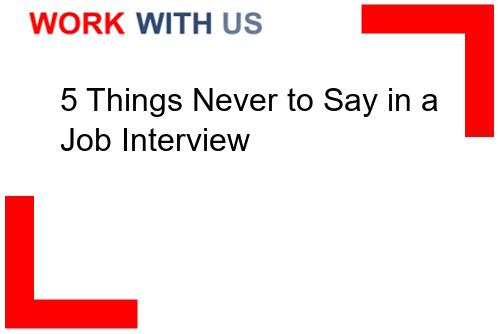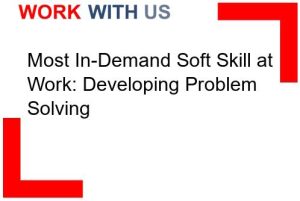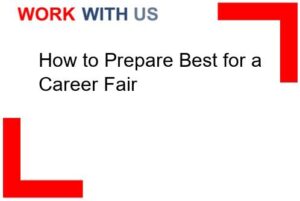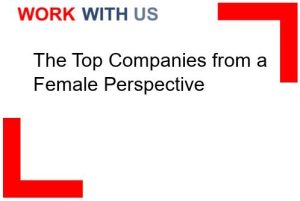In the realm of job interviews, the power of words cannot be underestimated. The way a candidate communicates during this crucial process can make or break their chances of securing a coveted position. With so much at stake, it is imperative to choose words wisely and avoid any potential pitfalls. In this regard, there are five things that should never be uttered during a job interview.
First and foremost, a candidate should never speak negatively about their previous employer. While it may be tempting to vent frustrations or share negative experiences, doing so reflects poorly on the candidate’s professionalism and ability to handle workplace conflicts. Instead, it is advisable to focus on the positive aspects of previous roles and highlight personal growth and learning experiences.
Secondly, discussing personal problems or issues is a major faux pas in a job interview. Employers are primarily interested in a candidate’s qualifications, skills, and ability to contribute to the organization. Sharing personal problems not only distracts from these important aspects but also raises concerns about the candidate’s ability to separate personal and professional life. It is crucial to maintain a professional demeanor and keep the conversation focused on the job at hand.
Another thing to avoid mentioning is salary expectations or demands too early in the interview process. While compensation is an important consideration, bringing it up prematurely can give the impression that the candidate is solely motivated by money. It is best to wait for the employer to initiate discussions about salary and benefits, and then approach the topic with tact and research-backed reasoning.
Additionally, candidates should refrain from making sweeping generalizations or negative comments about their industry or profession. Even if the candidate has valid concerns or criticisms, expressing them during an interview can be perceived as unprofessional and disrespectful. Instead, it is advisable to focus on constructive suggestions or ideas for improvement, demonstrating a proactive and solution-oriented mindset.
Lastly, it is crucial to avoid exaggerating or lying about qualifications, skills, or experiences. While it may be tempting to embellish one’s resume or inflate achievements, doing so can have severe consequences. Employers value honesty and integrity, and any dishonesty discovered during the interview process can lead to immediate disqualification or even termination if hired. It is always better to be transparent about one’s abilities and focus on showcasing genuine strengths and accomplishments.
In conclusion, a job interview is a critical opportunity to make a positive impression on potential employers. To maximize this chance, candidates should steer clear of negative comments about previous employers, personal problems, premature salary discussions, industry criticisms, and dishonesty. By avoiding these five pitfalls, candidates can present themselves as professional, reliable, and trustworthy individuals, increasing their chances of securing their dream job.
Common mistakes: 5 phrases to avoid in a job interview
During a job interview, it is crucial to make a positive impression on the interviewer. However, many candidates unknowingly make common mistakes that can hinder their chances of securing the position. To help job seekers avoid these pitfalls, here are five phrases that should be avoided during a job interview.
“I don’t have any weaknesses.”
One of the most common mistakes candidates make is claiming to have no weaknesses when asked about them. While it may seem like a good strategy to present oneself as flawless, it can actually backfire. Interviewers are well aware that everyone has weaknesses, and by denying them, candidates come across as dishonest or lacking self-awareness. Instead, it is better to acknowledge a genuine weakness and demonstrate how one is actively working to improve it. This shows humility, honesty, and a willingness to grow professionally.
“I’m just looking for any job.”
Expressing a lack of specificity in terms of job preferences can be detrimental during an interview. Employers want to hire candidates who are genuinely interested in the position and the company. By stating that one is willing to take any job, it gives the impression that the candidate is not particularly invested in the role being offered. It is essential to research the company beforehand and tailor responses to demonstrate genuine interest and enthusiasm for the specific job opportunity.
“My previous boss was terrible.”
Speaking negatively about a previous employer or boss is a red flag for interviewers. It reflects poorly on the candidate’s professionalism and ability to work well with others. Even if the previous work experience was challenging, it is crucial to maintain a positive and diplomatic approach when discussing it. Instead, candidates should focus on highlighting the lessons learned and how they have grown from those experiences.
“I don’t have any questions.”
When an interviewer asks if the candidate has any questions, responding with “no” can be perceived as disinterest or lack of preparation. Asking thoughtful questions not only demonstrates engagement but also provides an opportunity to gather valuable information about the company and the role. Candidates should prepare a list of questions in advance, focusing on topics such as company culture, future goals, or specific responsibilities. This shows the interviewer that the candidate is genuinely interested in the position and has taken the time to research the company.
“I’m only here for the money.”
While financial stability is undoubtedly an important factor in accepting a job offer, emphasizing it too much during an interview can give the impression that money is the sole motivator. Employers want to hire candidates who are passionate about the work and the company’s mission, rather than those solely driven by monetary incentives. Instead, candidates should focus on discussing their skills, qualifications, and how they can contribute to the company’s success. This demonstrates a genuine interest in the job itself, rather than just the financial benefits.
In conclusion, job seekers should be mindful of the phrases they use during a job interview. Avoiding common mistakes such as denying weaknesses, expressing a lack of specificity, speaking negatively about previous employers, not asking questions, or emphasizing money can significantly improve one’s chances of success. By demonstrating professionalism, enthusiasm, and a genuine interest in the position, candidates can leave a lasting positive impression on the interviewer and increase their likelihood of securing the job.
Building a positive impression: words to steer clear of during a job interview
During a job interview, it is crucial to make a positive impression on the interviewer. One way to achieve this is by carefully choosing the words one uses during the conversation. Certain words can inadvertently convey negative connotations or give the impression of unprofessionalism. Therefore, it is essential to steer clear of such words and focus on using positive and professional language.
Avoid Negative Language
Using negative language during a job interview can create a pessimistic atmosphere and give the impression that the candidate has a negative outlook. Words such as “can’t,” “won’t,” or “impossible” should be avoided. Instead, candidates should focus on using positive language that demonstrates their willingness to take on challenges and find solutions. For example, instead of saying, “I can’t handle stressful situations,” one could say, “I thrive in fast-paced environments and excel under pressure.”
Eliminate Filler Words and Phrases
Filler words and phrases can make a candidate appear unsure or lacking confidence. Words like “um,” “uh,” or “like” should be avoided as they can distract the interviewer and undermine the candidate’s credibility. Instead, candidates should strive to speak confidently and clearly, using concise and precise language. Taking a moment to gather thoughts before responding can help eliminate the need for filler words and ensure a more polished delivery.
Steer Clear of Overused Buzzwords
While it is important to showcase one’s skills and qualifications, using overused buzzwords can make a candidate sound cliché and unoriginal. Words like “team player,” “detail-oriented,” or “self-starter” have become so commonplace that they no longer hold much meaning. Instead, candidates should focus on providing specific examples and concrete evidence of their abilities. For instance, instead of simply stating, “I am a team player,” one could say, “In my previous role, I successfully collaborated with cross-functional teams to achieve project milestones and deliver exceptional results.”
Avoid Negative Remarks About Previous Employers
Speaking negatively about previous employers or colleagues can raise red flags for interviewers. It reflects poorly on the candidate’s professionalism and ability to work well with others. Even if the candidate had a negative experience, it is essential to maintain a positive and diplomatic approach when discussing past work situations. Instead of criticizing previous employers, candidates should focus on highlighting the lessons learned and how they have grown from those experiences.
Be Mindful of Tactless Language
Tactless language can inadvertently offend the interviewer or create an uncomfortable atmosphere. Candidates should avoid making inappropriate jokes, using offensive language, or discussing sensitive topics such as politics or religion. It is crucial to maintain a respectful and professional tone throughout the interview. By being mindful of their language choices, candidates can ensure they create a positive and inclusive environment during the conversation.
The Importance of Body Language
Apart from verbal communication, body language plays a significant role in making a positive impression during a job interview. Candidates should maintain good posture, make eye contact, and use appropriate gestures to convey confidence and engagement. Slouching, avoiding eye contact, or fidgeting can give the impression of disinterest or nervousness. By being aware of their body language, candidates can enhance their overall impression and demonstrate their professionalism.
The Power of Active Listening
Active listening is a crucial skill that can help candidates build rapport with the interviewer and showcase their attentiveness. It involves fully focusing on the speaker, maintaining eye contact, and providing verbal and non-verbal cues to show understanding and engagement. By actively listening, candidates can respond more effectively to questions and demonstrate their ability to collaborate and communicate effectively.
The Art of Asking Thoughtful Questions
Towards the end of the interview, candidates are often given the opportunity to ask questions. This is a chance to showcase their interest in the role and the company. Asking thoughtful and well-researched questions demonstrates preparedness and genuine curiosity. Candidates should avoid asking questions that could easily be answered by a quick internet search or focusing solely on salary and benefits. Instead, they should inquire about the company culture, growth opportunities, or specific projects they would be involved in.
The Impact of Follow-Up Communication
After the interview, candidates should not underestimate the importance of follow-up communication. Sending a thank-you email or note to the interviewer shows appreciation for their time and reiterates the candidate’s interest in the position. It is an opportunity to reinforce the positive impression made during the interview and keep the candidate top of mind. Additionally, candidates should ensure their communication is error-free and professional, further solidifying their positive image.
In conclusion, building a positive impression during a job interview requires careful consideration of the words one uses, as well as attention to body language and active listening. By avoiding negative language, filler words, and overused buzzwords, candidates can present themselves as confident and professional. Being mindful of tactless language and showcasing active listening skills further enhances the impression made on the interviewer. Finally, following up with a thoughtful and error-free communication demonstrates professionalism and reinforces the positive image created during the interview.
Navigating tricky questions: 5 responses to avoid in a job interview
Job interviews can be nerve-wracking experiences, especially when faced with tricky questions that catch you off guard. How you respond to these questions can greatly impact your chances of securing the job. It is crucial to prepare yourself and avoid certain responses that may hinder your chances of success. Here are five responses to steer clear of during a job interview:
The Blank StareOne of the worst responses you can give to a tricky question is a blank stare. This conveys a lack of preparation and confidence, leaving the interviewer unimpressed. Instead, take a moment to gather your thoughts and respond with a concise and well-thought-out answer. Remember, even if you don’t know the exact answer, demonstrating your ability to think on your feet and provide a thoughtful response can go a long way.
The Rambling StoryWhen faced with a challenging question, it is essential to avoid going off on tangents or providing lengthy, irrelevant stories. Interviewers value concise and to-the-point answers that directly address the question at hand. By rambling, you risk losing the interviewer’s interest and appearing unprepared. Focus on the key points and deliver your response in a clear and concise manner.
The Negative AttitudeMaintaining a positive attitude throughout the interview is crucial. Avoid responding to tricky questions with negativity or criticism. Even if the question seems unfair or challenging, it is important to remain composed and professional. Instead, try to find a positive angle or highlight a learning experience from a difficult situation. This demonstrates your ability to handle adversity and maintain a positive outlook.
The OverconfidenceWhile confidence is important, overconfidence can be detrimental during a job interview. Responding to tricky questions with an overly confident tone can come across as arrogant and dismissive. It is essential to strike a balance between confidence and humility. Acknowledge the question’s complexity and demonstrate your willingness to learn and grow. Employers value candidates who are self-assured yet open to feedback and continuous improvement.
The DishonestyPerhaps the most critical response to avoid in a job interview is dishonesty. It may be tempting to embellish your skills or qualifications to impress the interviewer, but this can have severe consequences. Employers value honesty and integrity, and any dishonesty can lead to immediate disqualification from the hiring process. Instead, be truthful about your abilities and experiences, and focus on highlighting your genuine strengths and accomplishments.
In conclusion, navigating tricky questions during a job interview requires careful consideration and preparation. Avoiding responses such as the blank stare, rambling stories, negative attitude, overconfidence, and dishonesty is crucial to presenting yourself as a strong and qualified candidate. Remember to remain composed, stay positive, and provide concise and thoughtful answers. By doing so, you increase your chances of leaving a lasting impression on the interviewer and ultimately securing the job you desire.
Mastering professional communication: 5 taboo topics in a job interview
Mastering professional communication is crucial when it comes to job interviews. It is essential to present oneself in the best possible light and avoid discussing taboo topics that could potentially harm one’s chances of securing the desired position. In this article, we will explore five taboo topics that should be avoided during a job interview, providing insights on how to navigate these situations with professionalism and tact.
1. Personal Problems and Drama
During a job interview, it is important to maintain a professional demeanor and focus on the qualifications and skills relevant to the position. Discussing personal problems or drama can create an impression of being emotionally unstable or unable to handle stress effectively. It is best to leave personal issues at the door and concentrate on showcasing one’s abilities and suitability for the job.
2. Salary and Benefits
While compensation is an important aspect of any job, it is generally considered inappropriate to discuss salary and benefits during an initial interview. This topic is best left for later stages of the hiring process when the employer has expressed genuine interest in hiring the candidate. Bringing up salary too early can give the impression that the candidate is solely motivated by financial gain rather than the opportunity to contribute to the company’s success.
3. Politics and Controversial Topics
Engaging in discussions about politics, religion, or any other controversial topics during a job interview is highly discouraged. These subjects can be polarizing and may lead to disagreements or biases that could negatively impact the interviewer’s perception of the candidate. It is advisable to steer clear of such topics and focus on discussing professional experiences and qualifications instead.
4. Negative Experiences with Previous Employers
While it may be tempting to vent frustrations about previous employers, it is crucial to maintain a positive and professional attitude during a job interview. Speaking negatively about past employers can raise concerns about the candidate’s ability to work well with others or handle conflicts in a constructive manner. Instead, it is advisable to highlight positive experiences and lessons learned from previous roles.
5. Personal Relationships and Family Matters
Job interviews should primarily focus on professional qualifications and experiences. Discussing personal relationships or family matters can be seen as unprofessional and irrelevant to the job at hand. It is important to keep the conversation centered on the skills and expertise that make the candidate a suitable fit for the position.
The Importance of Non-Verbal Communication
In addition to avoiding taboo topics, mastering professional communication also involves paying attention to non-verbal cues. Body language, facial expressions, and tone of voice can greatly influence how a candidate is perceived during an interview. Maintaining eye contact, sitting up straight, and using appropriate gestures can convey confidence and engagement. It is also important to listen actively, nodding and providing verbal cues to show understanding and interest.
The Power of Preparation
Preparation is key to mastering professional communication in a job interview. Researching the company, understanding the job requirements, and practicing common interview questions can significantly boost a candidate’s confidence and ability to articulate their qualifications effectively. By preparing thoughtful and relevant answers, candidates can demonstrate their knowledge and enthusiasm for the position, leaving a lasting impression on the interviewer.
The Art of Active Listening
Active listening is an essential skill in professional communication. It involves fully focusing on the speaker, understanding their message, and responding appropriately. By actively listening, candidates can demonstrate their ability to comprehend instructions, ask relevant questions, and engage in meaningful conversations. This skill not only showcases one’s communication abilities but also highlights their attentiveness and willingness to collaborate effectively.
The Impact of Emotional Intelligence
Emotional intelligence plays a vital role in professional communication. It involves understanding and managing one’s emotions, as well as empathizing with others. During a job interview, candidates with high emotional intelligence can effectively navigate challenging questions, handle feedback gracefully, and build rapport with the interviewer. This skill demonstrates the candidate’s ability to work well with others, adapt to different situations, and contribute positively to the company culture.
The Role of Follow-Up Communication
After a job interview, it is essential to follow up with a thank-you note or email to express gratitude for the opportunity and reiterate interest in the position. This gesture demonstrates professionalism, attention to detail, and a genuine desire to join the organization. Following up also provides an opportunity to address any additional questions or concerns that may have arisen during the interview, further showcasing the candidate’s commitment and communication skills.
In conclusion, mastering professional communication in a job interview involves avoiding taboo topics, paying attention to non-verbal cues, and demonstrating skills such as active listening and emotional intelligence. By preparing thoroughly, showcasing professionalism, and following up appropriately, candidates can increase their chances of making a positive impression and securing their desired position.



